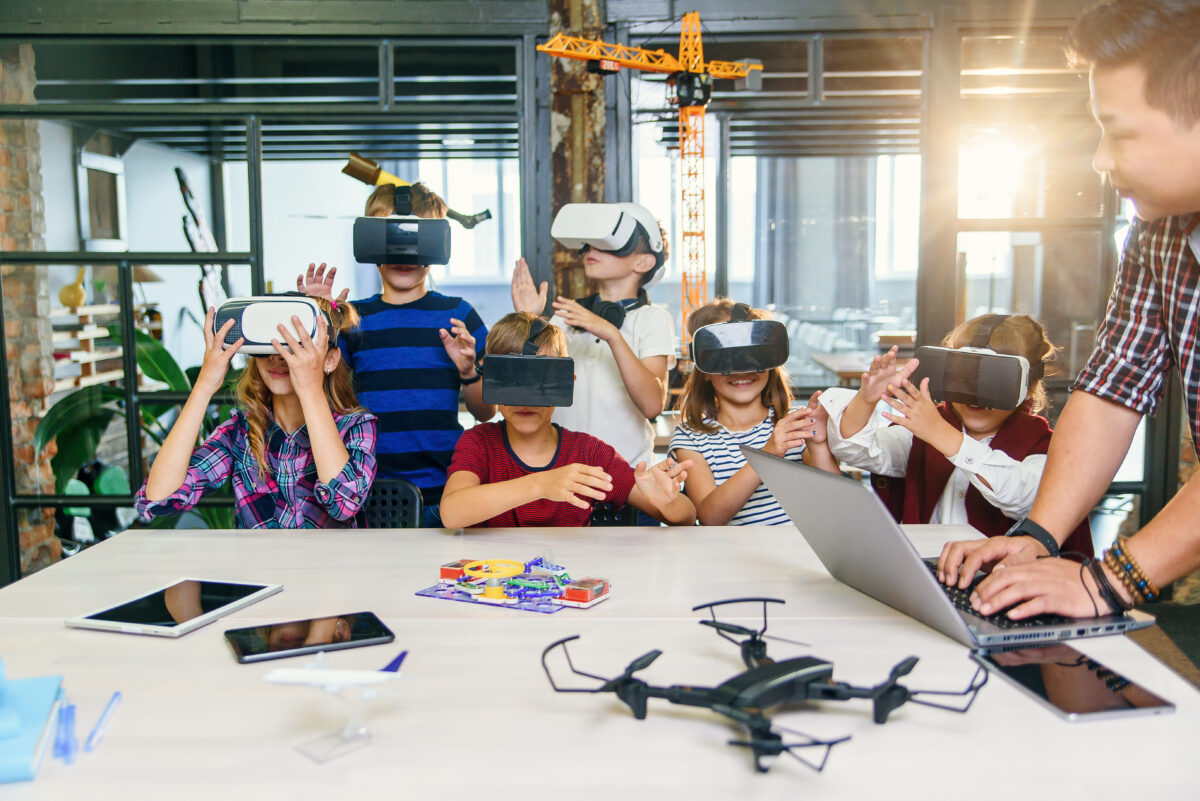The Bottom Line A Case for Disrupting K-12 Education in the U.S.
Innovation has pushed other industries into the future, so why not our educational system? Originally published at Puget Sound Business JournalWhile technology and innovation have disrupted many sectors of the economy over the past several decades, the K-12 education industry has remained largely untouched. Public education today operates nearly the same as it did decades ago, and not entirely different from its inception more than 175 years ago based on Horace Mann’s framework.
Known as the father of public education, Mann developed the American education model based on the Prussian system during the industrial age. The approach is a one-size-fits-all model based on the faulty notion that all students of the same age will learn the same amount in the same length of time, and in the same way. Therefore, students are grouped by age, not understanding level. Subjects are taught one hour a day in isolation from each other, and the focus is on teaching toward the test. The curriculum is fixed and not responsive to what students need or want to learn.
Considering that Mann died decades before the telephone was invented by Alexander Graham Bell, the lack of innovation in K-12 education is astonishing.
Now is the time for creative, innovative business minds with a passion and a vision for the future of education to step into this emerging arena as edupreneurs.
Keri D. Ingraham
It’s long past time we transform one of the most vital industries of our country — the education system which shapes our future leaders, workforce, military, and electorate. Despite more money being pumped into the $800 billion K-12 public education industry each year, learning results continue to slip. U.S. students place 26th among other developed nations, and 77% of students exit 13 years of K-12 public schooling failing to reach proficiency levels in foundational subjects.
One might object to the characterization that public schools are devoid of innovation by pointing to the remote instruction implemented due to Covid-19. Alas, this serves only as a negative example of how the public education monopoly, dominated by self-serving teacher unions, tends to make terrible decisions regarding children’s education.
In this case, the long-term shuttering of schools caused a major disruption to the education of millions of students. And, despite all the talk of never going back to education as we knew it before the pandemic, when children returned to physical classrooms, little was unchanged in the education industry besides less instruction time and more government funding.
Now consider the technological disruption and innovation in other industries. Uber, and later Lyft, reinvented what was before a monopoly held by taxicab companies. Previously, the government tightly controlled the industry by requiring drivers to purchase taxi medallions (which could cost several hundred thousand dollars) in order to operate their cabs. As a result of the government control, consumers had very little choice when hailing a ride.
Uber came along and disrupted the industry by creating a smartphone app in which the supply and demand of transportation services could be met through a digital platform. The app also provided the ability to rate drivers and passengers — screening out bad actors who could spoil the experience. The result was superior service at a lower cost. The increased competition also forced taxicab companies to lower their rates and improve their service.
Similarly, Netflix and a host of other television and movie subscription providers disrupted the cable industry and put Blockbuster, the movie rental company that had dominated for 25 years, out of business. The increased flexibility and convenience enjoyed by customers, who could customize their desired services and avoid a drive to a physical store to select a movie, transformed the television and at-home movie industry. Again, the end result of the disruption was a superior user experience and more options at lower costs for consumers.
Of course, there are outliers of innovation within K-12 education, such as online schools, hybrid models, microschools, learning pods, and beyond. However, these outliers are limited in the number of students they reach as most of those options require families to pay additional costs despite already paying taxes to fund K-12 public education.
To break the K-12 monopoly, families must be empowered with educational options beyond traditional public schools. Arizona recently took the lead by becoming the first state in the nation to pass legislation providing all K-12 students with school choice. Through the expansion of Arizona’s Empowerment Scholarship Account, each of the 1.1 million students in Arizona will soon have access to a $7,000 per year account, which can be used for private schools, online schools, homeschool, microschools, tutoring, or other educational services.
At the scholarship program’s inception in 2011, only about 100 students had this provision. The program grew to serve 11,000 students by 2022. With 1.1 million students now having access to education freedom, alternative options to traditional and charter public schools will be in high demand.
Who will answer that call? The opportunity is ripe for “edupreneurs” — entrepreneurs working in the education arena. New schools, new school models, and innovative learning avenues are sure to result.
As other states follow suit in providing families with educational freedom, the market for edupreneurship will continue to grow. Now is the time for creative, innovative business minds with a passion and a vision for the future of education to step into this emerging arena.
The future of the nation depends upon our providing effective and meaningful learning for the upcoming generation. Edupreneurship coupled with universal school choice is the exciting and much-needed transformative future of American education.


